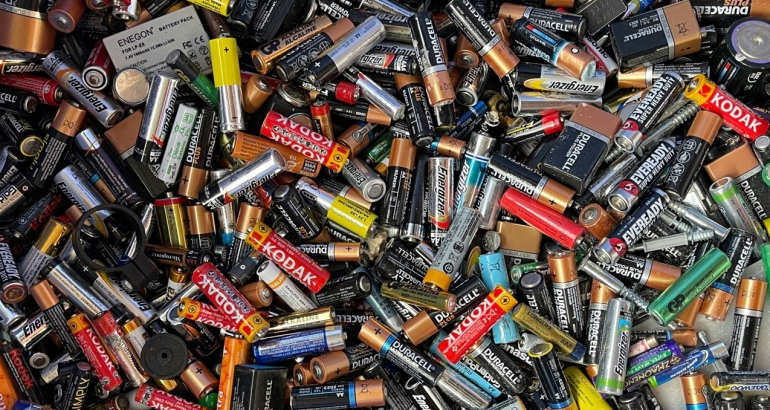Latest news
Read the latest news from the Centre for Sustainable Materials Research and Technology

A UNSW SMaRT Centre government submission urging more robust recycling arrangements for electronic waste has featured in a new report by the Total Environment Centre entitled "Battery Recycling Crisis".
The TEC report contains "an urgent plan to confront the waste battery crisis and ... emphasises the critical need for immediate regulatory intervention to establish a comprehensive, mandatory Product Stewardship Scheme (PSS) ... (to) facilitate the safe collection, recycling, and re-use of all battery types."
It quotes from SMaRT's 2023 submission to the Department of Climate Change, Energy, the Environment and Water's regulation of e-products ‘Wired for Change’ discussion paper.
Read SMaRT's submission for the "Regulation of e-products ‘Wired for Change’ discussion paper"
This follows UNSW SMaRT Centre with other UNSW researchers recently winning a new grant to develop new technology to upscale lithium-ion battery recycling.
Engineering’s Professor Guan Yeoh and Dr Cheng Wang along with ARC Laureate Professor Veena Sahajwalla and Dr. Rasoul Nekouei from UNSW Science were awarded $2.7 million to develop a novel process for recycling lithium-ion batteries in collaboration with industry partners Oxleigh.
Prof. Sahajwalla said there’s been a rise in waste as electric vehicle (EV) batteries near the end of their lifecycle.
“This project aims to develop a safe and environmentally sustainable micro-isolation process specifically designed to treat the black mass or shredded material from waste lithium-ion batteries,” she said.
Read the full UNSW announcement
Project summary:
The Project is developing a novel process for recycling lithium-ion batteries. The technology processes the ‘black mass’ from waste batteries into precursor material that can be re-used to manufacture new lithium-ion batteries. Project partners - Oxleigh, the University of NSW, Scimita Operations, Envirostream Australia and Worley - are undertaking an $8.1 million collaborative venture to advance the development and commercialisation of the process.
The Project will fully develop and upscale a safe and environmentally sustainable process that can treat up to 5.5 tonnes/year of black mass from NMC-type lithium-ion batteries to recover at least 80% of the lithium, nickel, manganese, and cobalt metals as salts at greater than 90% purity.